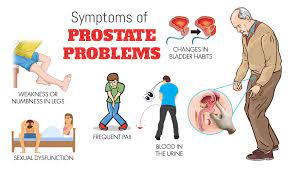

Prostate-specific antigen (PSA) is a protein that is found in the blood of most men. PSA is used to diagnose prostate cancer. Some people believe that elevated PSA levels may be a sign of health problems other than prostate cancer, such as heart disease, stroke, or diabetes. In this blog post, we will explore how elevated PSA levels can affect your health and how you can improve your health by managing your PSA levels. We will also discuss the various ways to lower your PSA levels and what you can do if your PSA levels remain elevated. Finally, we will provide you with some tips on how to talk to your doctor about your PSA levels. By reading this blog post, you will learn how to make informed decisions about your health and how to take control of your health.
1. What are prostate-specific antigen (PSA) tests?
Prostate-specific antigen (PSA) tests are used to help doctors diagnose prostate cancer. PSA tests measure the amount of PSA in a man’s blood. PSA levels can change over time due to many factors, including prostate cancer.
PSA tests are not always reliable for diagnosing prostate cancer. PSA tests are not always accurate and can lead to false positive and false negative results. PSA tests can also be used to monitor the success of treatment for prostate cancer.
2. What are the possible health risks of having elevated PSA?
There are a few potential health risks associated with having elevated prostate specific antigen (PSA). First and foremost, elevated PSA can be an indicator of prostate cancer. Second, if PSA is elevated due to prostate cancer, it can cause other health problems such as an enlarged prostate, difficulty urinating, and decreased sexual function.
3. How elevated PSA can be linked to prostate cancer?
Prostate specific antigen (PSA) is a protein that is secreted by the prostate gland in response to infection or inflammation. Elevated levels of PSA have been linked to prostate cancer.
While most cases of prostate cancer are caused by genetic alterations, there is some evidence that PSA levels may also play a role. In fact, research suggests that men with a high PSA concentration are at a higher risk of developing prostate cancer.
PSA levels are usually measured in the blood and can range from 0.10 to 4.0 ug/L. The higher the PSA concentration, the greater the risk of developing prostate cancer. However, there is no guarantee that any level of PSA will lead to prostate cancer.
Although there is no one answer for preventing prostate cancer, keeping your PSA levels in check may help reduce your risk. If you do develop prostate cancer, early diagnosis and treatment is the best chance for a good outcome.
4. How can elevated PSA be treated?
Most men with elevated PSA levels don’t have prostate cancer. However, if you have a family history of prostate cancer or you have a strong suspicion that you might have prostate cancer, then it’s important to get checked out.
There are many different ways to treat elevated PSA levels. The most common way is to take a prostate specific antigen (PSA) test every three months and then treat any results that are elevated. Treatment options may include medications, radiation, or surgery.
There is no one-size-fits-all answer when it comes to treating elevated PSA levels, as the best approach depends on the individual’s situation. However, knowing about the different treatment options and talking to your doctor is important in making the best decision for your health.
5. What are the long-term health risks of elevated PSA?
There are a few potential health risks associated with having elevated prostate specific antigen (PSA). These risks may include:
1. Increased risk of developing prostate cancer.
2. Increased risk of developing other cancers.
3. Increased risk of developing cardiovascular disease.
4. Increased risk of developing diabetes.
5. Increased risk of developing early death.
Though the risks are significant, it’s important to remember that not everyone who has elevated PSA will develop any of the aforementioned health conditions. However, if you’re concerned about your health, it’s important to speak with your doctor.
6. What are the possible benefits of having elevated PSA?
There are many possible benefits to having elevated PSA levels. Some men believe that having elevated PSA levels can be a sign of prostate cancer, while others believe that elevated PSA levels may be simply a result of aging.
Regardless of the belief, there are many potential benefits to having elevated PSA levels.
Some potential benefits of having elevated PSA levels include:
– Knowing that you have prostate cancer may encourage you to get checked more often.
– Knowing that you have elevated PSA levels may encourage you to make changes to your lifestyle, such as quitting smoking or reducing your alcohol intake.
– Knowing that you have elevated PSA levels may encourage you to take a more active role in your prostate health by using supplements or medications.
– Knowing that you have elevated PSA levels may encourage you to seek out professional advice.
7. How to get tested for elevated PSA:
Elevated prostate specific antigen (PSA) is a common test that is used to screen for prostate cancer. PSA levels can be elevated for many reasons, including aging, prostate infection, and prostate cancer.
If you are at risk for prostate cancer, it is important to know your PSA level and to get tested regularly. If your PSA level is elevated, you may want to discuss your test results with your doctor.
PSA levels can also be affected by other health conditions. If you have elevated PSA levels and another health condition, such as high blood pressure, diabetes, or heart disease, your doctor may recommend that you take additional steps to improve your health.
8. What to do if you have elevated PSA:
If you have elevated prostate specific antigen (PSA), it’s important to get tested. This is especially true if you have any symptoms such as difficulty urinating, a greater than average thirst, fatigue, lower back pain, or an enlarged prostate.
The good news is that most cases of elevated PSA can be treated with medication and/or surgery. However, if you have significant symptoms, it’s important to see a doctor as soon as possible.
If you are diagnosed with elevated PSA, your doctor will likely order a blood test to determine your level of the antigen. If your level is high, your doctor may recommend treatment with medication or surgery. Treatment options may include:
Medication:
Medications are usually prescribed to lower your PSA level. Some of the most common medications used to lower PSA levels include finasteride (Proscar) and dutasteride (Avodart). These medications are usually taken once a day and can take several months to reach a desired PSA level.
Surgical:
If the level of PSA is high and medication isn’t effective, surgery may be recommended. This might include a prostatectomy ( surgery to remove the prostate ) or a transurethral resection of the prostate (TURP).
9. Additional information on prostate cancer:
Elevated prostate specific antigen (PSA) levels have been found to be a predictor of prostate cancer and other health problems. PSA is a protein that is made by the prostate gland in response to infection or inflammation.
There is currently no cure for prostate cancer, but there are many treatments that can improve the quality of life.
PSA levels can be elevated for many reasons, including:
-Age. Prostate cancer occurs more often as men get older.
-Race. African American men have a higher risk of developing prostate cancer than white men, even though their incidence is still lower than that of other races.
-Smoking. Smoking increases the risk of developing prostate cancer, especially if you are a former smoker.
-Obesity. Obesity is associated with an increased risk of developing prostate cancer.
-HIV infection. HIV infection increases the risk of developing prostate cancer.
-Chemotherapy. Chemotherapy treatment for cancer can cause a temporary increase in PSA levels.
-Urinary tract infection. A urinary tract infection (UTI) can cause an increase in PSA levels.
-High blood pressure. High blood pressure increases the risk of developing prostate cancer.
-Treatment for other conditions. Certain medications, including steroids and anti-inflammatories, can increase the risk of developing prostate cancer.
-Preexisting prostate cancer. If you have prostate cancer, your PSA level may be higher than normal even if you have been treated and your cancer is in remission.

If you want to get amazing benefits by using this link
Conclusion:
We hope you enjoyed our article on how elevated prostate specific antigen (PSA) can affect your health. PSA is a biomarker that is commonly used to monitor the progression of prostate cancer. In this article, we discussed the possible causes of high PSA levels, and offered tips on how to address them. We also provided a few resources for those who want to learn more about PSA and prostate cancer. We hope that this article was helpful, and that you will continue to stay informed about the latest prostate health news.


